Famine in the Horn of Africa
Allan Jury, Director of the US Relations Office, World Food Programme
Photos | Transcript
Washington, DC—On August 8, 2011, WFPG held a Beyond the Headlines Series program on "Famine in the Horn of Africa" with Allan Jury, director of the US relations office for the World Food Programme (WFP). Jury gave a detailed account of the dire situation on the ground for Somalis suffering from the famine, the obstacles WFP is experiencing in getting food distributed to victims, and the impact of the famine on neighboring countries. A lively conversation ensued on donor responses and overall planning for future food security.
Jury discussed the origins of the famine, citing the drought, political instability, and the lack of access to food. He explained that the major obstacle to food distribution-particularly in Southern Somalia-has been obstruction by the al-Qaeda-affiliated al-Shabab group, which has severely impeded aid delivery. Al-Shabab controls most of the territory of southern Somalia-an area which holds 2.2 million of the 3.7 millions Somalis in need-and has banned WFP from operating in the region since January of 2010. Due to the power of this militant organization, as well as the importance of Somalia's central government, Somalia is considered the most dangerous and difficult country for aid workers, says Jury. Without a massive increase in international assistance and delivery access, Jury expects famine to be declared across all of southern Somalia within two months.
Jury asserts that there is no easy answer in dealing with al-Shabab, and that the potentials of aid ending up in the hands of al-Shabab represent "legitimate concerns" that individuals should consider when donating. Jury went on to cite difficult decisions that WFP itself has had to make, often having to choose between delivering food aid, and refraining from doing so when no satisfactory accountability measures exist.
The effects of the political instability in Somalia are not restricted to the country's borders, Jury contends. Kenya and Ethiopia have been taking in upwards of two thousand refugees per day, leading to tense feelings within the Kenyan and Ethiopian governments. The governments of these countries have asked WFP to deliver more aid within Somalia itself, to ebb the flow of severely malnourished individuals into external refugee camps.
The response of the aid community to the crisis, Jury believes, has been notably well-organized and collaborative. Aid groups, governments, and the UN were already working together as early as March of this year to create a preemptive approach in response to early-detected drought and famine warnings, explains Jury. WFP, for example, raised over $250 million in government donations before the famine was even officially declared in the region-including $50 million from Saudi Arabia, part of a new wave of donations from an area connected by cultural and economic ties to the Horn of Africa. Jury hopes donors keep this momentum up after news of the crisis fades from the front page, since the cost of WFP's operation in the region will remain extremely expensive over the next year (largely due to logistics costs).
In terms of the future and long-term planning, Jury emphasized the need for comprehensive aid approaches and long-term resilience programs. He cited the example of how the initial funds raised earlier in the year were used to stock forward purchase facilities with food and supplies, as well as to boost preparedness structures in Kenya and Ethiopia-programs which should be expanded to assure stronger food security in the future.
Jury pointed out how Ethiopia's preparedness was especially successful, with thousands of people saved from the worst effects of the drought due to efforts in partnership with the Productive Safety Nets Program. "We do have successful examples [of resilience programs] in Ethiopia and Kenya and parts of northern Somalia," held Jury. "The immediate need is emergency assistance, but we cannot forget the need to build into the recovery process programs to deal with resilience for these populations."
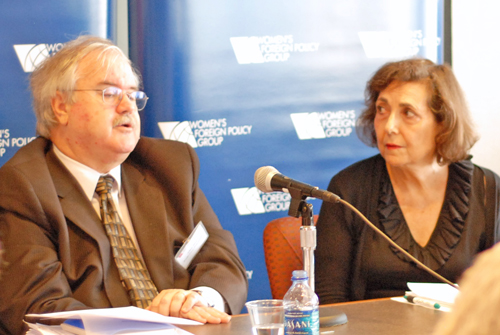 |
 |
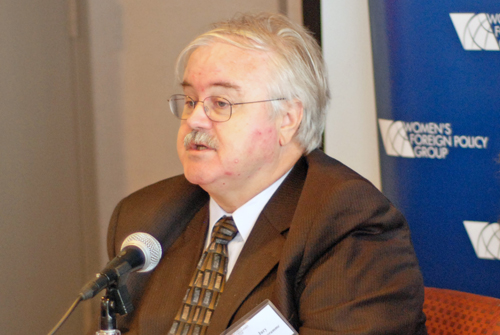 |
Allan Jury with WFPG President Patricia Ellis
|
|
Speaker Allan Jury, Director of
the World Food Programme's DC office
|
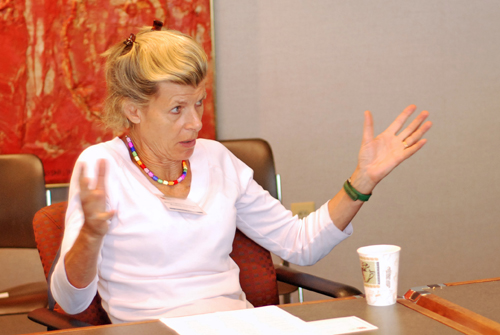 |
 |
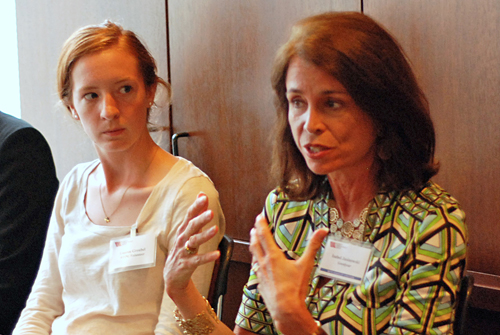 |
Board Member Diana Negroponte during the Q&A
|
|
Board Member Isabel Jasinowski asks a question
|
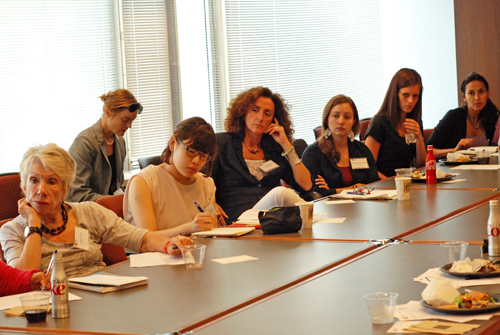 |
 |
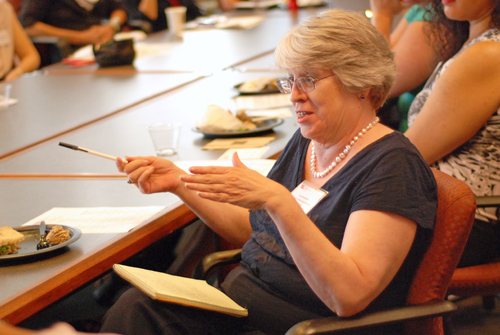 |
| |
|
|
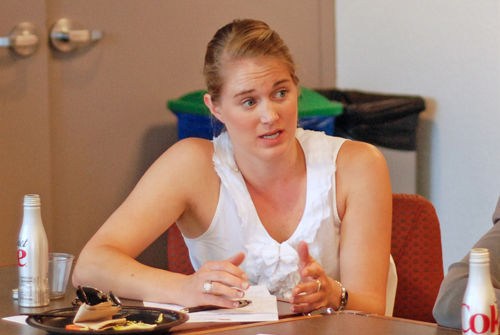 |
 |
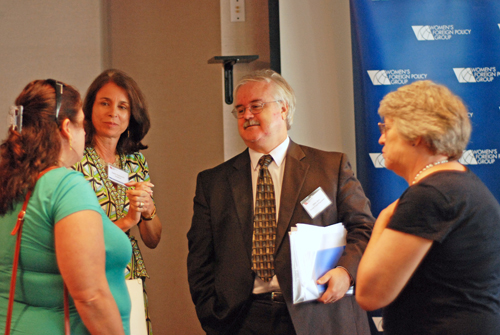 |
| |
|
|